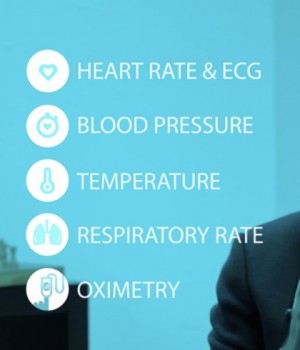Australian solar car start-up EVX Ventures is working together with Swinburne University of Technology’s leading electric vehicle R&D group in the quest to build the world’s first road-legal solar sports car, the Immortus. At Swinburne, EVX leverages the expertise of engineers with decades of experience in building and racing solar cars in the World Solar Challenge. Electric Vehicle Expert and EVX CTO, Dr Clint Steele, leads a team of over 40 engineers on this exciting journey.
EVX remains on the cutting edge of electric vehicle and e-mobility technology, looking beyond the current trend of plug-in vehicles to energy independent vehicles (EIVs), which require no power sources external to the vehicle.
EVX entered the global media spotlight in August 2015 in major media publications such as Forbes and Fast Company, leading up to an appearance at the SEMA Show In Las Vegas (the world’s largest automotive speciality parts tradeshow), and meetings with key contacts in Silicon Valley, drawing praise and recognition from potential customers and business partners within the automotive industry.
 The future looks bright for EVX
The future looks bright for EVX
Through its lean approach, the company continues to break new ground despite being born in the highly conservative local Australian business climate, which has in the last six months struggled to embrace initiatives by new Prime Minister (and former venture capitalist) Malcolm Turnbull to encourage greater innovation and local start-up activity.
A primary concern has been the government’s apparent focus on the digital tech sector at the expense of other industries, whereas EVX’s acknowledgement of local key competencies has enabled it to leverage the strength of Melbourne’s expertise as a previous auto manufacturing powerhouse.
Economist Stephen King says innovation needs to capitalise on the existing Australian economy. “Driverless cars are all the rage in Silicon Valley… it is not particularly an Australian issue. But a huge benefit would be long-range, high-speed, driverless truck convoys,” he recently remarked in the Sydney Morning Herald.
With the recent media excitement surrounding the Tesla Model 3, which has neared an unprecedented 400,000 pre-sales, there has never been a more exciting time to be a part of the electric vehicle industry, as public demand for electric vehicles soars.
What has EVX been up to lately?
EVX hopes to capitalize on this burgeoning market opportunity, having taken the advantage of being a first-mover and leader in the field of EIVs. The EVX team is currently focused on raising capital and developing a prototype of the Immortus, projected for completion within the next 12 months.
EVX expects to utilise the Immortus as a platform for developing key range-extension technologies, which would benefit commercial fleets and mass-produced vehicles. An example of this is the EVX Hybrid Retrofit Kit, which is being developed as an aftermarket performance component that can be installed in existing vehicles to reduce fuel consumption, reduce emissions, and increase range.

CEO Barry Nguyen recently travel to Berlin, Germany this April to present at the IdTechEx Show, the world’s largest end-user focused technology tradeshow event, with a component dedicated to Electric Vehicles and E-mobility, which attracted over 2500 industry delegates. Barry was also able to meet and connect with representatives of a couple of other solar car startups.
Due to the success of the presentation in Berlin, Barry has been invited to again present an update at the IdTechEx Show in Silicon Valley this November. The team will travel with him to help promote EVX.
They are currently looking at a number of investment options for their seed funding round, and say they will be able to produce the prototype within 12 months of securing funding.






![Three easy wins when using LinkedIn with David Hobson [FREE REPORT]](https://anthillonline.com/wp-content/uploads/2015/08/3quick-wins-300x194.png)
![How did Sean Clark build a $300 million turnover company from a $500 AdWords investment? [CHEAT SHEET]](https://anthillonline.com/wp-content/uploads/2016/03/SEAN-CLARK-cheatsheet-NSFU-02.pdf-Box-2016-03-16-14-43-21-100x75.png)
![Learn how to use Instagram as a business tool [FREE INFOGRAPHIC]](https://anthillonline.com/wp-content/uploads/2012/12/nickelbackinstagram-100x75.jpg)
![How to zig when everyone else is zagging, with Julio De Laffitte [CHEAT SHEET]](https://anthillonline.com/wp-content/uploads/2015/08/Capture2-100x75.jpg)
![Generating Web Traffic with Mark Middo and James Tuckerman [FREE REPORT]](https://anthillonline.com/wp-content/uploads/2015/08/Capture3-100x75.jpg)


![Is your bluetooth iPad keyboard not hipster enough for you? Go old school [VIDEO]](https://anthillonline.com/wp-content/uploads/2012/08/iTypewriter2.jpg)
![Subaru aims to corner an untapped market: dogs that drive [VIDEO]](https://anthillonline.com/wp-content/uploads/2013/02/SubaruDog-300x349.jpg)
![How to zig when everyone else is zagging, with Julio De Laffitte [CHEAT SHEET]](https://anthillonline.com/wp-content/uploads/2015/08/Capture2-300x194.jpg)
![How to pitch sales and marketing ideas to your boss with James Tuckerman [FREE REPORT]](https://anthillonline.com/wp-content/uploads/2015/07/Render-3-100x75.png)
![Three easy wins when using LinkedIn with David Hobson [FREE REPORT]](https://anthillonline.com/wp-content/uploads/2015/08/3quick-wins-100x75.png)
![How to build a retail empire with James Webber [FREE REPORT]](https://anthillonline.com/wp-content/uploads/2015/06/james-webber-instagram-memes-01-100x75.jpg)
![How to market your business when you don’t have a business yet [CHEAT SHEET]](https://anthillonline.com/wp-content/uploads/2016/01/oli-gardner-memes-02-100x75.jpg)
![New Zealand’s Xero eyes US IPO, further disruption as subscribers increase [INFOGRAPHIC]](https://anthillonline.com/wp-content/uploads/2014/07/sruuuuujana-212x194.png)
![Ever wonder if your ‘content marketing’ is really just crap? You gotta see this! [INFOGRAPHIC]](https://anthillonline.com/wp-content/uploads/2014/08/content-100x75.jpg)
![7 Business Lessons From Game of Thrones [INFOGRAPHIC]](https://anthillonline.com/wp-content/uploads/2014/10/infographic-games-of-thrones-041-100x75.jpg)
![How to build your own Media Empire… In seven steps with Nathan Chan [INFOGRAPHIC]](https://anthillonline.com/wp-content/uploads/2014/10/Nathan-Chan-Infographic-e1413419529176-100x75.jpg)
![5 Business Lessons From Tinder [INFOGRAPHIC]](https://anthillonline.com/wp-content/uploads/2014/10/Tinder-Elegant-Infographic-100x75.jpg)



